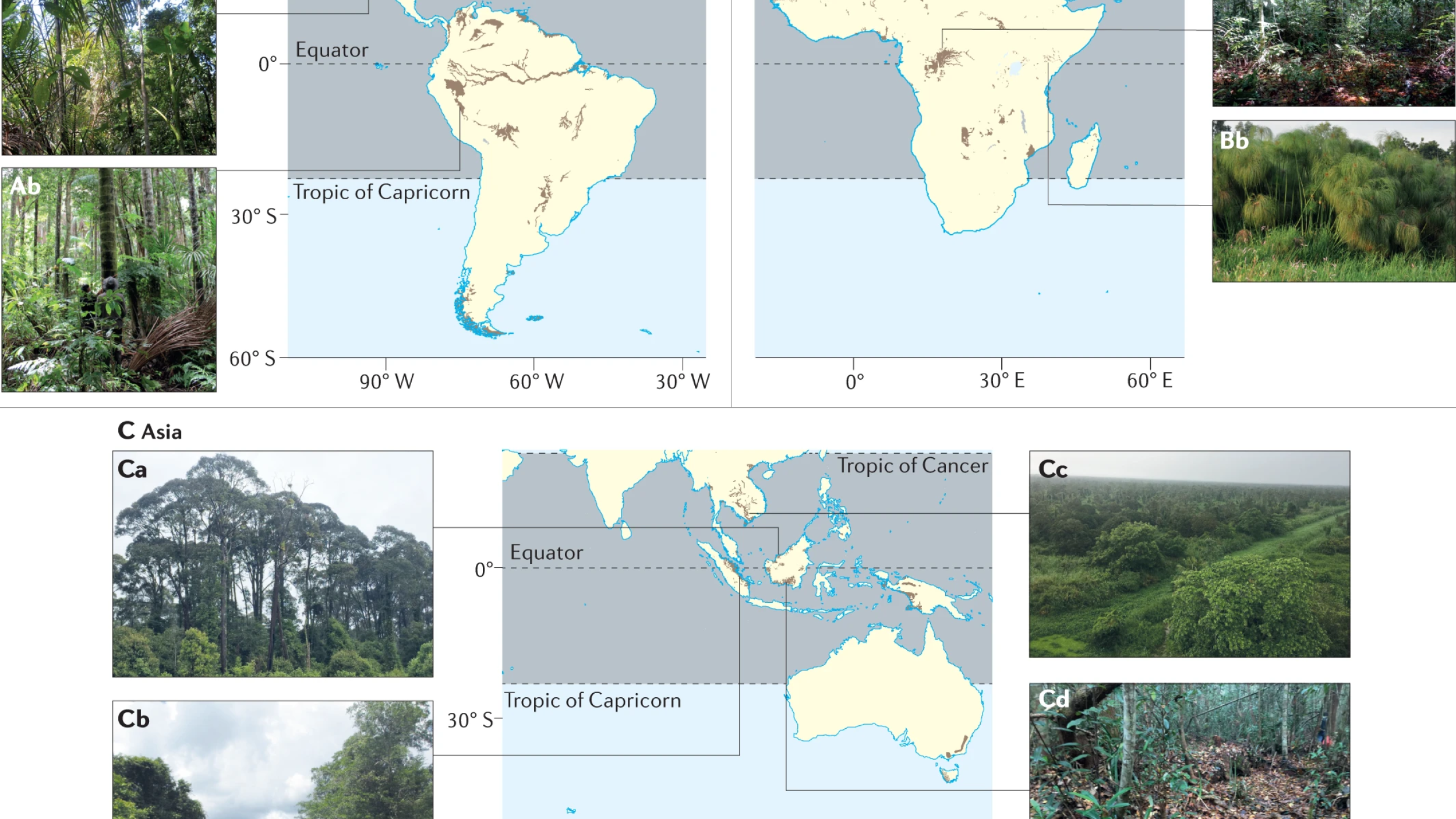
New study: Anthropogenic impacts on lowland tropical peatland biogeochemistry
Researchers have conducted a review in which they examine how land-use and fire-driven transformations alter the biogeochemical processes in tropical peatland ecosystems. Anthropogenic transformations (which include deforestation, drainage, conversion to agricultural lands and fire) result in high loss of carbon and reduced carbon storage, increased greenhouse gas (GHG) emissions, loss of hydrological integrity and peat subsidence accompanied by an enhanced risk of flooding. Moreover, they result in changes in nutrient storage and cycling in the tropical peatlands. Consequently, inputs of fertilizers are required to sustain crop production, which further disturbs the ecosystem and leads to greater GHG emissions. Under a warming climate, these impacts are likely to intensify. As a result, disturbed and intact peat swamps are at risk of losing 20 per cent of current carbon stocks by 2100. Improved measurement and observation of carbon pools and fluxes, along with process-based biochemical knowledge, are needed to support management strategies to reduce carbon loss from drained peatlands, protect tropical peatland carbon stocks and mitigate GHG emissions.
Citation: Page, S., Mishra, S., Agus, F. et al. Anthropogenic impacts on lowland tropical peatland biogeochemistry. Nat Rev Earth Environ (2022).
You can access the study here https://doi.org/10.1038/s43017-022-00289-6